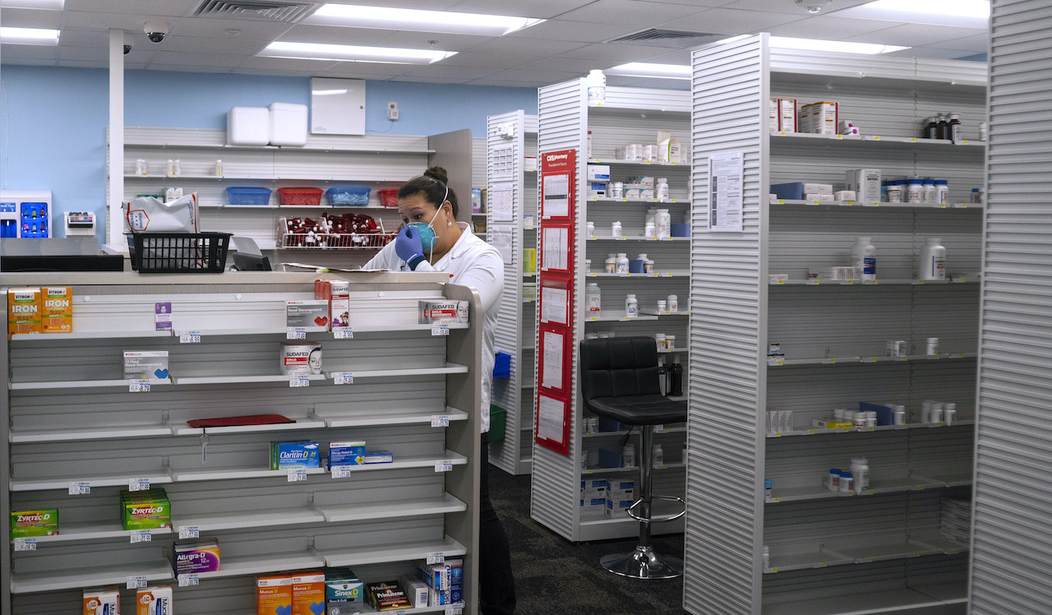A federal appeals court just dealt a huge blow to hospitals that pad their bottom line with cash intended for needy patients.
Federal law requires drug makers to sell their medications at steep discounts to hospitals and clinics that serve poor communities. The court threw out regulations requiring drug makers to sell drugs at a discount to each and every pharmacy an eligible hospital contracts with, regardless of whether the drugs are for poor patients.
The ruling is great news for Americans who need care but have a hard time affording it. It's also a cautionary tale about how legislation intended to help the poor got twisted bureaucratically into a way for hospital administrators to get rich.
Congress created the system in question by enacting Section 340B of the Public Health Service Act of 1992. Under 340B, hospitals that serve needy patients, including the uninsured and underserved, can buy drugs from manufacturers at highly discounted rates, similar to those offered to Medicare. On average, 340B participants receive 59% off list prices.
Unfortunately, 340B doesn't explicitly require hospitals to pass on discounts to needy patients or otherwise use the savings to provide free or discounted care. Instead, hospitals and pharmacies use 340B to buy cheap drugs for which they often charge full freight.
For example, according to documents obtained by Senator Chuck Grassley's office, just 5% of all drugs purchased under 340B by Duke University Hospital in 2012 went to uninsured patients, while 67% went to patients with private insurance.
Even worse, a bureaucratic rule change in 2010 vastly expanded the scope for abuse. Until then, a hospital or clinic qualifying for 340B could contract with no more than one outside pharmacy to dispense 340B drugs.
The rule change, with no direct basis in the law, removed this limit, allowing hospitals to contract with as many outside pharmacies as they wish. The number of pharmacies exploded by 4,228% from 2010 to 2020, according to the Berkeley Research Group. That year, there were over 100,000 such pharmacies, up from just over 2,000 in 2010.
Recommended
These pharmacies, and the hospitals they serve, get rich off of 340B. BRG found that these "contract pharmacies" make an average profit of 72% on commonly dispensed drugs, compared to 22% for independent pharmacies. In 2018 alone, covered entities and contract pharmacies grossed $13 billion in profit on 340B drugs. According to BRG, that profit was around a quarter of all profits on brand-name medicines that year.
The abuse doesn't stop with proliferating contract pharmacies. A number of new studies, including one from the Center for Medicine in the Public Interest, the organization I lead, reveal just how deep the 340B grift goes. CMPI found that the discounts on 340B drugs actually grew by 144% from 2015 to 2021, amounting to $49.7 billion in 2021. Almost none of those savings went to patients.
In fact, 72% of nonprofit hospitals, many of which take 340B discounts, take $17 billion more in government tax breaks than they provide in charity care. Other data shows 340B hospitals that joined the program over the past 20 years have served wealthier and insured patients more than vulnerable ones.
Or consider cancer drugs. The Community Oncology Alliance found that 340B providers charge patients at least 4.9 times more for the top cancer drugs than their acquisition cost, keeping savings as "profit." COA also found that for all 340B drugs, cash-paying patients, who are likely uninsured, have to pay three times the average manufacturer's actual sales price, nearly the same as insured patients.
The runaway bureaucratic expansion of 340B must stop, and this court ruling is an important step. The court held that regulators ignored the letter of the law and exceeded their discretion in extending 340B discounts beyond hospitals in the program to an unlimited number of contract pharmacies. Two other appeals courts have decisions pending in similar cases.
On the merits, they should reach the same conclusion. If they diverge, the Supreme Court should step in to clarify that blatant bureaucratic rewriting of the law on such a major question is out of bounds.
Congress intended the 340B program to help those in need. The courts are acting to return it to that purpose.
Peter Pitts is a former associate commissioner of the U.S. Food and Drug Administration and president and co-founder of the Center for Medicine in the Public Interest.
























Join the conversation as a VIP Member